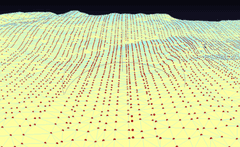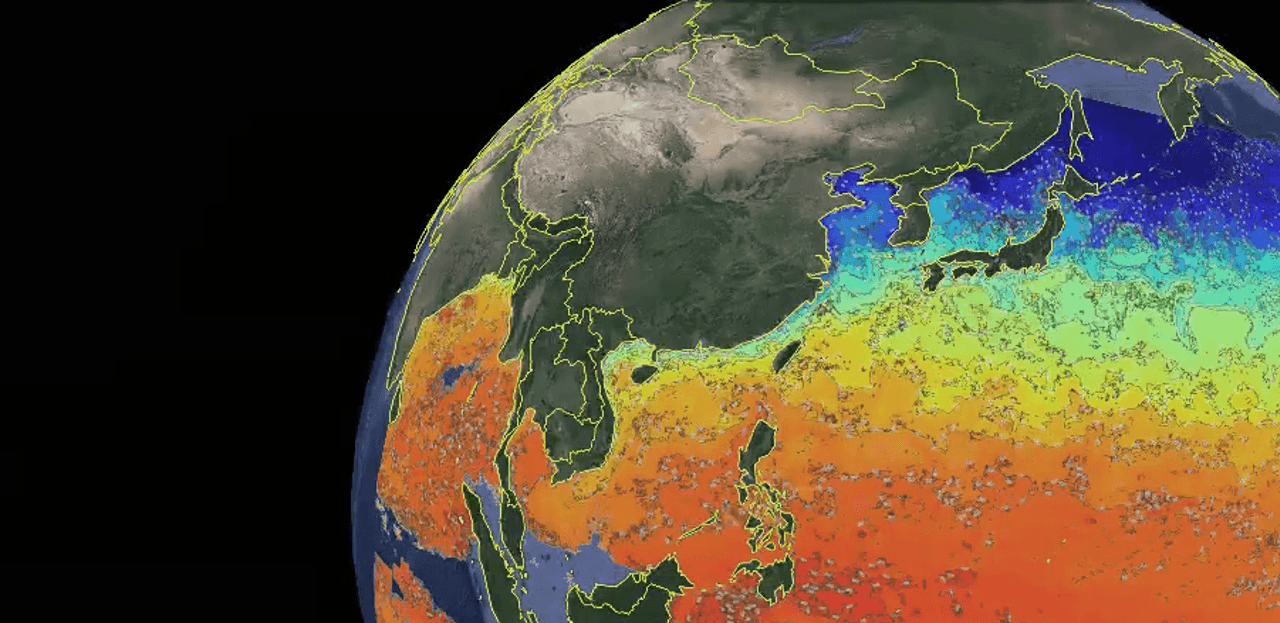Our paper is accepted at 2nd Workshop on Scalable 3D Scene Generation and Geometric Scene Understanding, ICCV 2025. "Forgetting-Free Incremental Panoptic Lifting by Maximum-Visibility Viewpoint…
Detail →
Computer Vision Laboratory
Research Fields

FishTech
“FishTech” is a new technology which is a collaboration with fishery science, ocean science and informatics. Our goal is to develop FishTech for sustainable fishery which balances economic efficiency with resource management. We develop a new pattern recognition and data assimilation technology which employ domain knowledge of ecology of fish and oceanography, and analyze environmental data acquired in a process of fishing activities. Our technology supports short-term and long-term fishing operation providing suitable fishing spots, oceanographic conditions and fishery management plans.

3D Shape Reconstruction under Participating Media
3D reconstruction is a technique to reconstruct an object’s 3D shape from 2D images captured with cameras. This technique can be utilized for a variety of applications such as self-driving vehicles and AR/VR technology. We develop 3D reconstruction techniques in participating media. For example, the contrast of an image captured under murky water, fog, or smoke is corrupted by scattered light due to suspended particles. 3D reconstruction techniques in such environments enable various applications in the real world.
Smart Tourism
Smart tourism that provides real-time and personal information support to tourists is emerging. In this research, we are studying technologies that can contribute to solving social problems such as over-tourism and disaster prevention by providing appropriate information to tourists by estimating and predicting the condition of them from sensor information such as GPS.

DeSET
This research aims to accelerate the creation of detailed bathymetric charts. In this research, treating bathymetric charts as digital images whose pixel values represent ocean depths, we proposed to use superresolution, a technique to enhance image resolution, to estimate fine bathymetric information from coarse observation data. This approach enables us to make full use of existing data and minimize new observation, thereby realizing efficient mapping of seafloor details.
Latest Activities
Our paper, "Improving fishing ground estimation with weak supervision and meta-learning
", was published in PLOS ONE.
This is joint work with Mr. Takasan, graduated from our lab. Link
Detail →
Our paper is accepted at IEEE International Geoscience and Remote Sensing Symposium (IGARSS) 2025 in Brisbane.
It is a work with Iiyama Lab's student, Yusuke Suoh. 'ROAD DETECTION FROM SATELLITE…
Detail →
Two abstracts are accepted as oral presentation at IEEE International Geoscience and Remote Sensing Symposium (IGARSS) 2024, which will be held in Athene, Greece.
They are work with Iiyama Lab's…
Detail →
